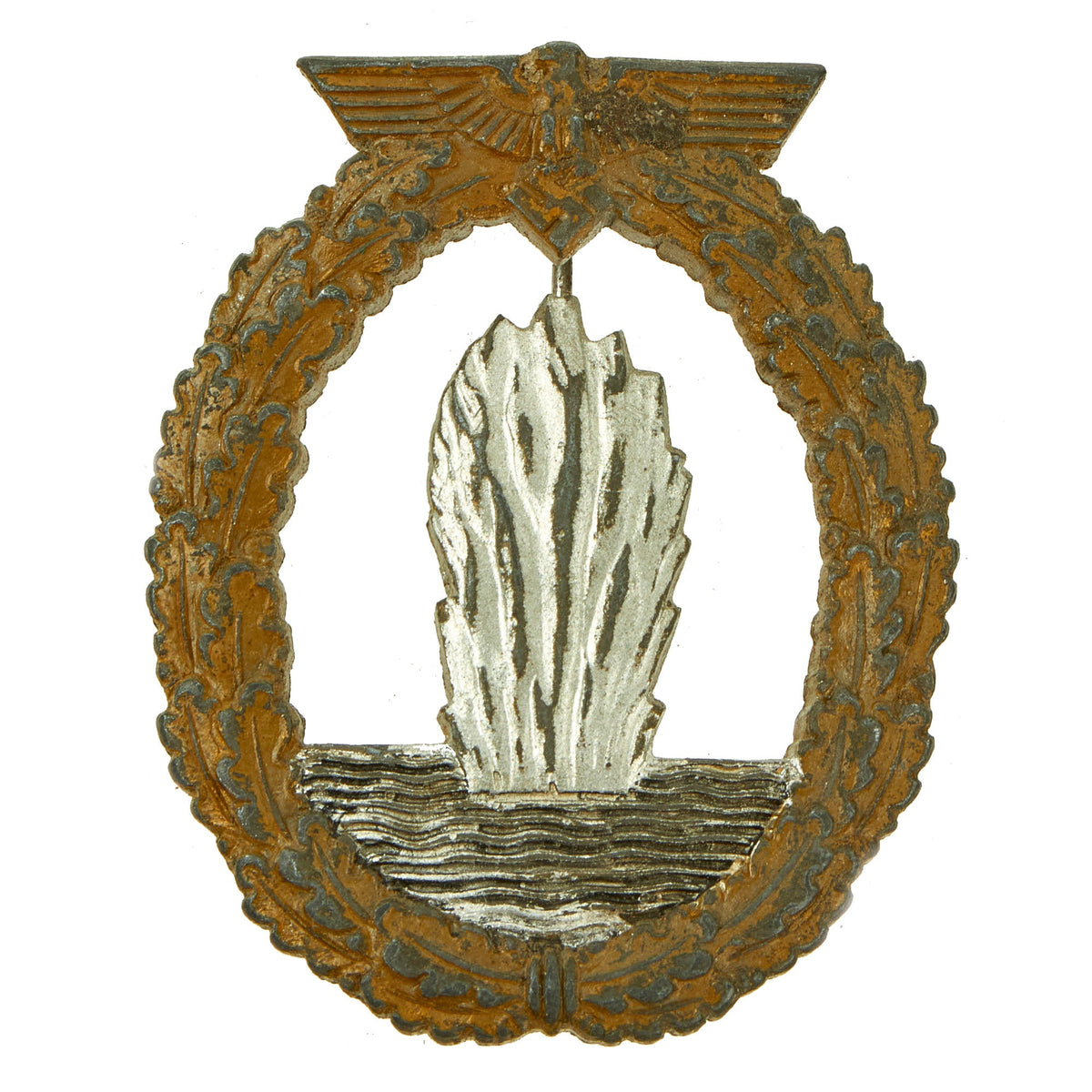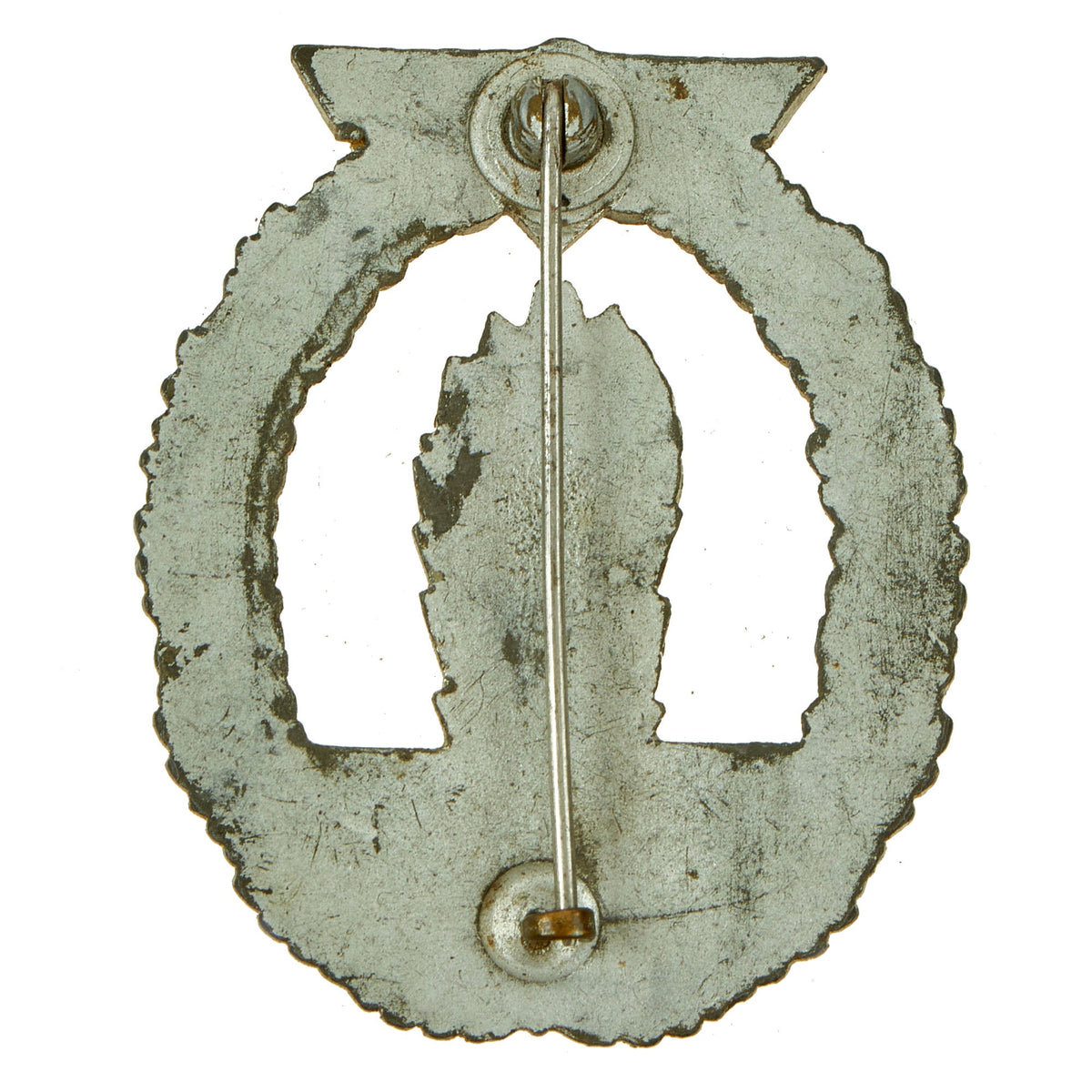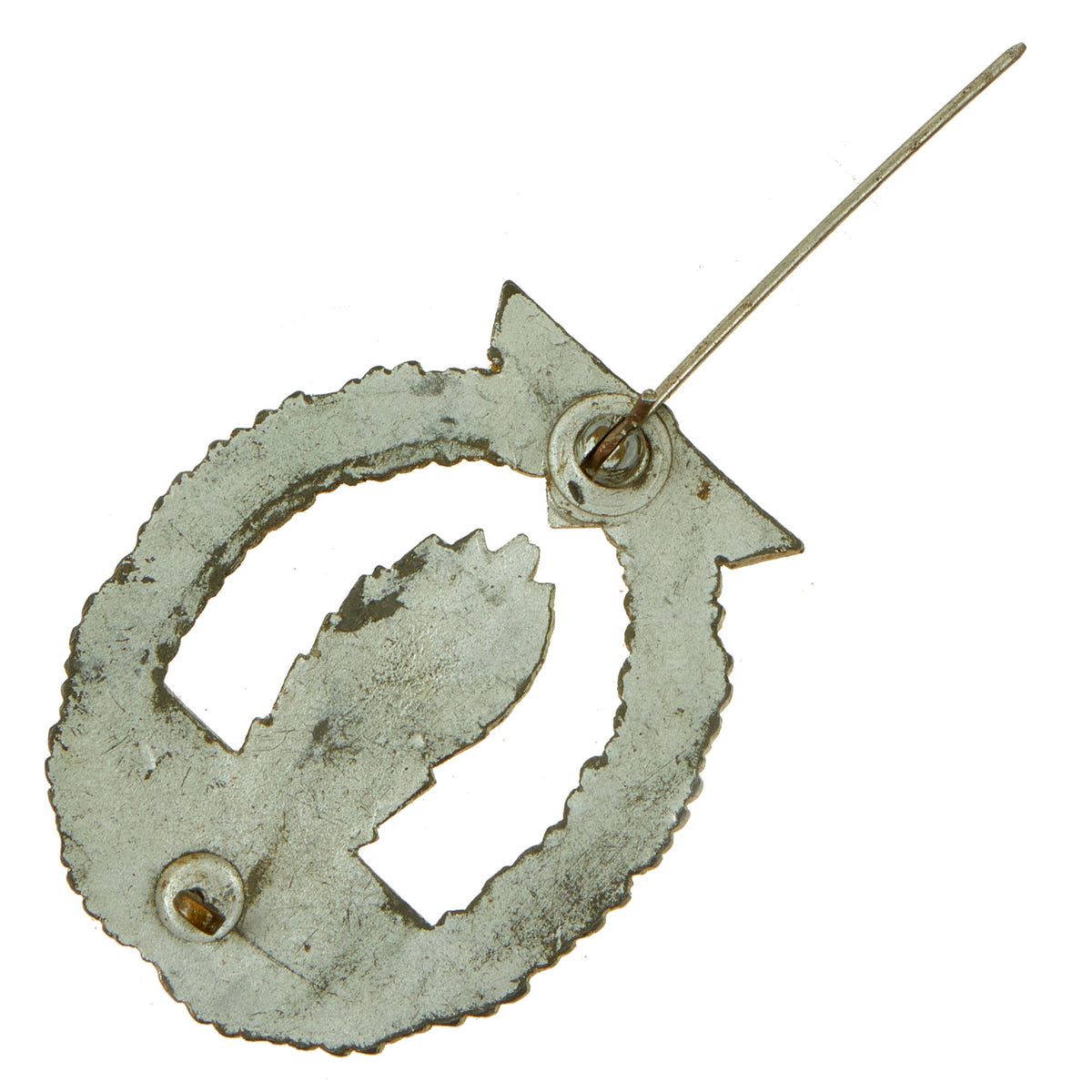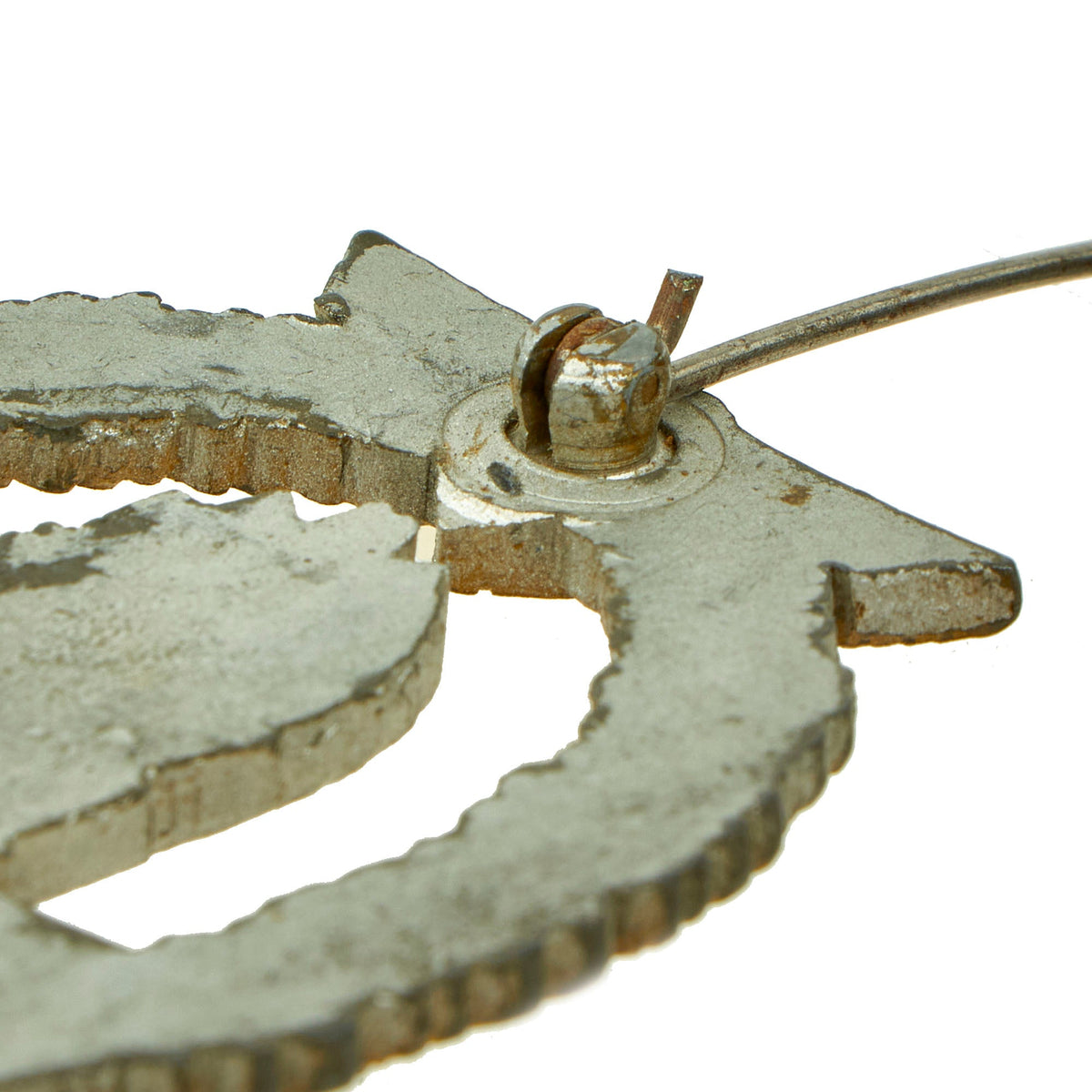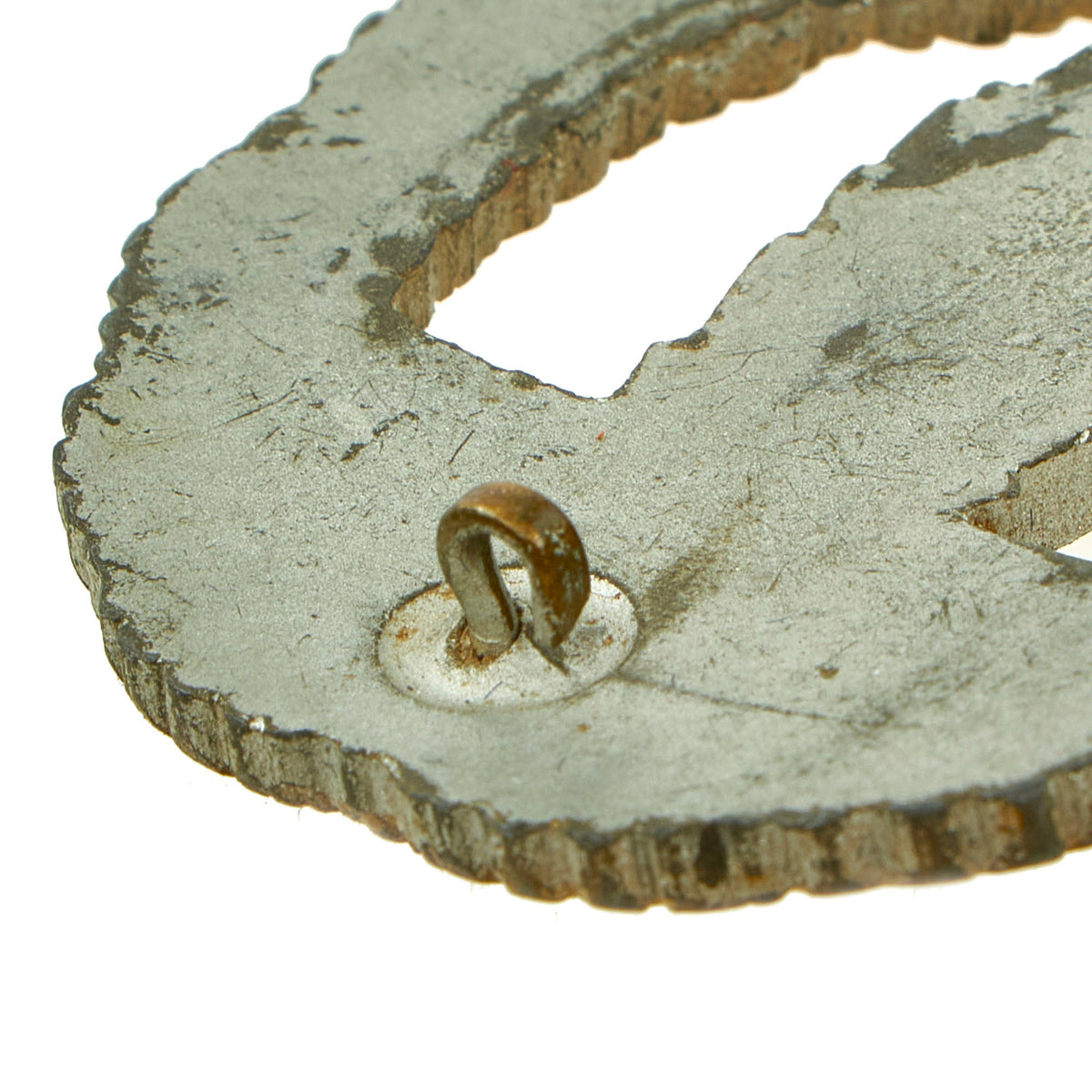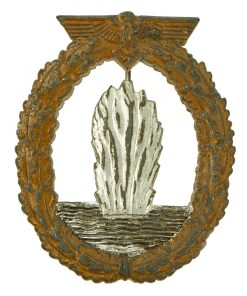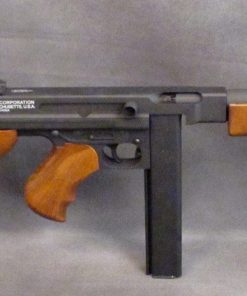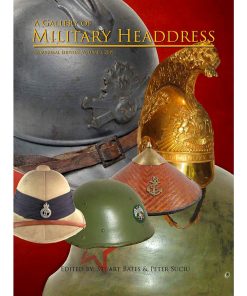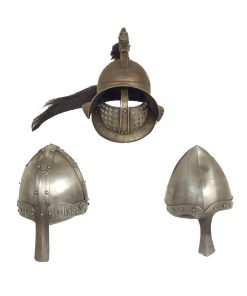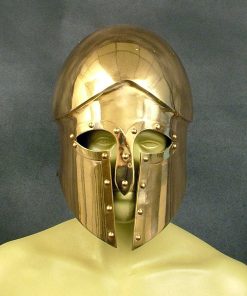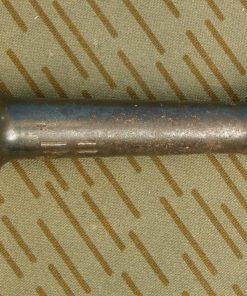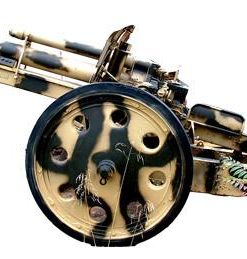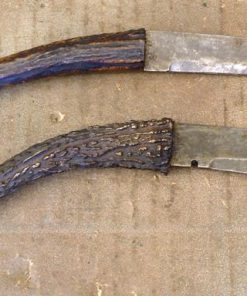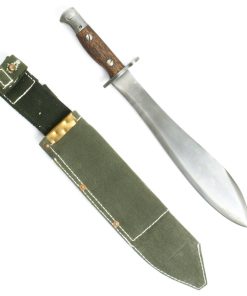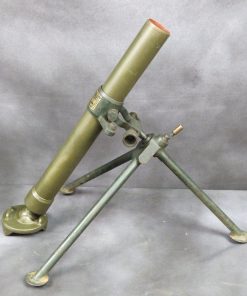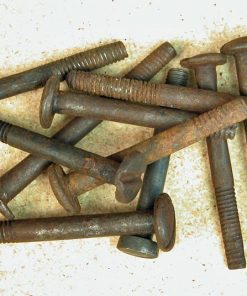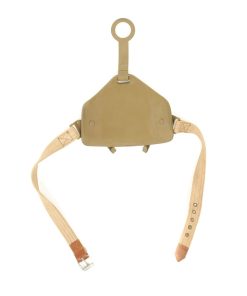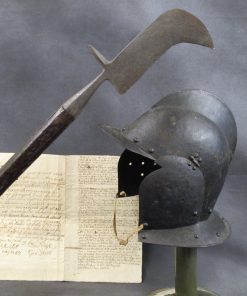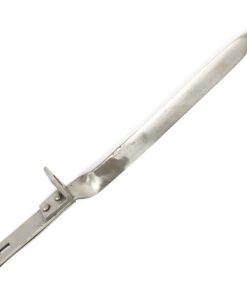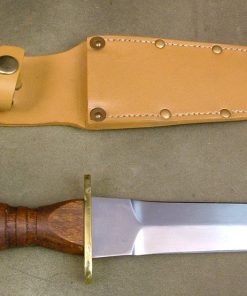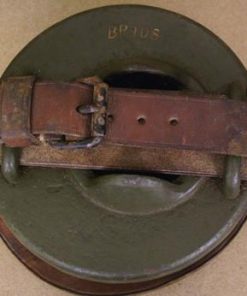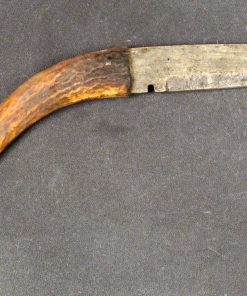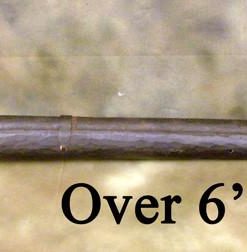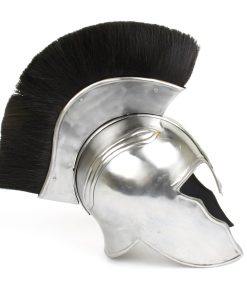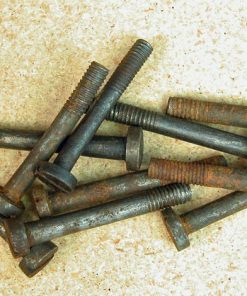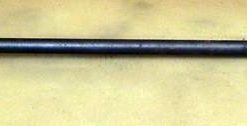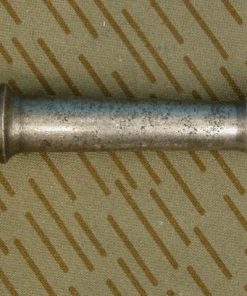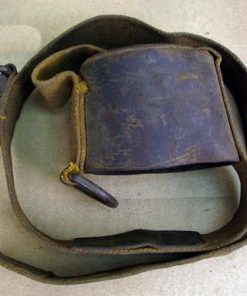Original German WWII Kriegsmarine Minesweeper War Badge – Unmarked Original Items
$ 295,00 $ 118,00
Original Item: Only One Available. This is a very nice example of the German WWII Kriegsmarine Minesweeper War Badge, which looks to be made from cast zinc alloy. The badge is in very good condition, with a functioning pin back. The silvering on the central “splash” portion of the design is still well retained, and unlike most we see, the gold wash on the oak leaf wreath is also present, though it is a bit oxidized and faded. We usually see these later war zinc types nearly devoid of the finish, so this is a real treat!
The front design consists of an oval oak leaf wreath, topped by a Wehrmacht eagle clutching a mobile swas (hook cross), with a central depiction of an exploding mine on top of detailed waves. The reverse is solid, with a standard pinback attachment.
A very nice example of a hard to find award!
The Minesweeper War Badge or Minesweepers, Sub-Chasers and Escort-Vessel War Badge (Kriegsabzeichen für Minensuch-, U-Boot-Jagd- und Sicherungsverbände) was instituted on August 31, 1941 by Kriegsmarine leader Grossadmiral Erich Raeder. The purpose of this award was to recognize the achievement and experience of the sailors on the German Navy’s minesweeper vessels. In this unnerving duty, sailors faced exposure to the elements as well as constant danger from mines, submarines, and airplanes.
The Minesweeper Badge features a representation of an exploding sea mine, surrounded by a wreath and surmounted by the German national eagle and swas emblem. It was designed by Otto Placzek and was made in tombak and zinc, with most later examples being the zinc type. The award could be ordered by leaders of minesweeper boats, patrol boats, and special units, and by superior Kriegsmarine commands. To qualify for this badge, a sailor had to make three operational sorties, be wounded on a sortie, show exemplary conduct over a six-month period, participate in an especially dangerous mission, serve on escort duty for 25 days or more, or be on a ship that was sunk by enemy action- the badge could be awarded posthumously.
Fast Shipping with Professional Packaging
Thanks to our longstanding association with UPS FedEx DHL, and other major international carriers, we are able to provide a range of shipping options. Our warehouse staff is expertly trained and will wrap your products according to our exact and precise specifications. Prior to shipping, your goods will be thoroughly examined and securely secured. We ship to thousands clients each day across multiple countries. This shows how we're dedicated to be the largest retailer on the internet. Warehouses and distribution centres can be located throughout Europe as well as the USA.
Note: Orders with more than one item will be assigned a processing date depending on the item.
Before shipping before shipping, we'll conduct a thorough inspection of the items you have ordered. Today, the majority of orders will be delivered within 48 hours. The delivery time will be between 3-7 days.
Returns
The stock is dynamic and we cannot completely manage it because multiple stakeholders are involved, including our factory and warehouse. So the actual stock may alter at any time. It's possible that you may not receive your order once the order has been made.
Our policy is valid for a period of 30 days. If you don't receive the product within 30 days, we are not able to issue a refund or an exchange.
You can only return an item if it is unused and in the same state as the day you received it. You must have the item in its original packaging.
Related products
Uncategorized
Uncategorized
Uncategorized
Uncategorized
Uncategorized
Uncategorized
Band of Brothers ORIGINAL GERMAN WWII Le. F.H. 18 10.5cm ARTILLERY PIECE Original Items
Uncategorized
Uncategorized
Uncategorized
Uncategorized
Armored Burgonet Helmet & Polearm from Scottish Castle Leith Hall Circa 1700 Original Items
Uncategorized
Uncategorized
Uncategorized
Uncategorized
Uncategorized
Uncategorized
Uncategorized
Uncategorized
Uncategorized
